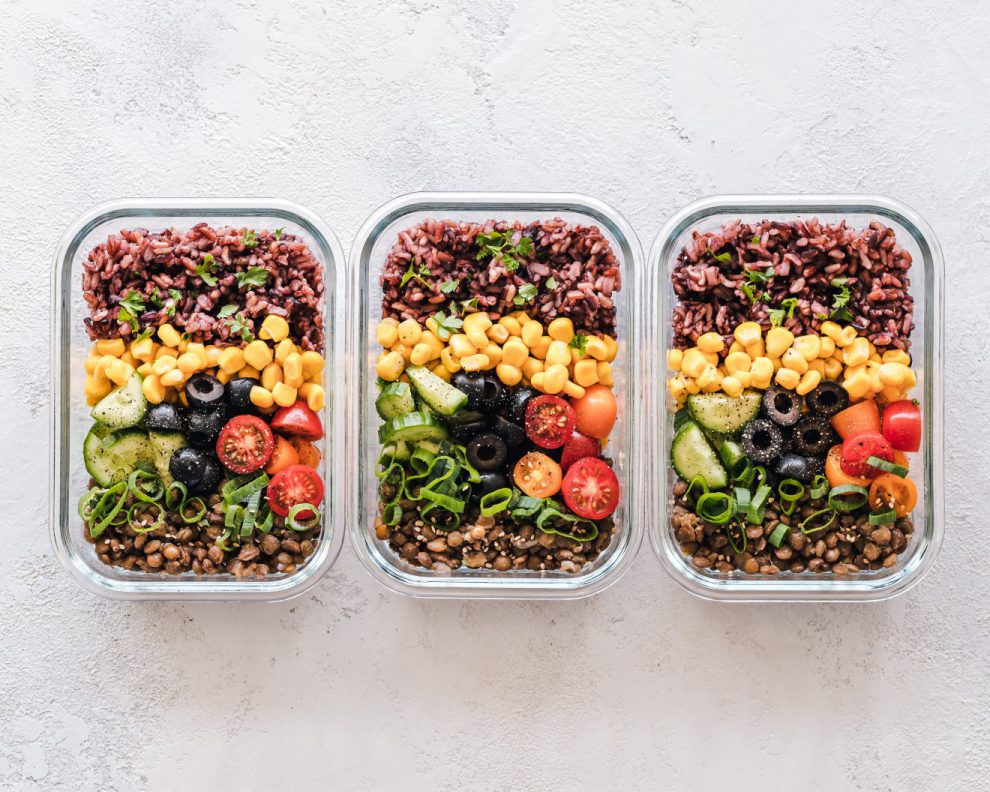You have been on a diet for a while and trying to eat less and healthier but your weight stays the same or, worse yet, goes up? Your motivation decreases and dietary rules are becoming easier to bend. Most likely, you can put the blame for this on a very common mistake, i.e. estimating your calorie intake. Have you ever tried actually counting calories?
Counting calories: You eat more than you think
Anyone familiar with the diet industry will confirm the importance of counting calories in your diet. Many people only estimate the calorie content of their meals and thus underestimate the number. Did you know that controlling your food intake this way you can go wrong by up to 2000 kcal per day? Sounds incredible? A lot of research has been done to confirm this thesis. Common features of people who report their caloric intake incorrectly are also indicated. The tendency to understate daily calorie intake has been attributed to the following groups: overweight or obese people, those who have made unsuccessful weight loss attempts and have bad memories associated to it, people with a greater need to be accepted by others, and females.
Your calorie need
When we are aware of the importance of counting calories in our diet, we still need to find out what our daily calorie need is. To establish it, we use three indicators. They include:
BMR – basal metabolic rate is the number of calories needed by our body to maintain basic bodily functions.
PAL – physical activity level includes specific values defining our activity during the day; it includes for instance our lifestyle, type of work, sport we do, etc.
TMR – total metabolic rate (BMR + PAL) is the number of calories required to function properly, taking into account daily physical activity, i.e. our actual daily caloric need.
We can easily find the formulas to calculate the above numbers on the Internet. Still, it will be easier to use diet calculators, which will immediately provide our result after entering the necessary data.
Counting calories: Setting your goals
The rules are simple. If we want to lose weight, we need to eat less calories than our daily need is. And if we want to gain weight, we must eat more of them. For health reasons, it is also important to properly balance macronutrients in the diet. However, calories are crucial for weight change. So we have to take control over them. Many of us think that it is difficult and troublesome while the situation is completely different. We currently have access to a variety of caloric tables, calculators and apps with a huge database of products and their nutritional values. We just need a little bit of motivation, strong will and a kitchen scale. Once we get into this habit, it will become merely a few more minutes spent on meal preparation.
Common mistakes when counting calories
- The first most common sin is excluding snacks eaten in between meals from the calorie count. Inconspicuous candy or two after breakfast. Trying dinner several times while cooking. Reaching for what we have at hand to kill afternoon hunger. In the end, all this generates a significant calorie surplus. Reliable reporting of every consumed product allows us to control snacking, which is definitely not a good eating habit. It also affects the change in our attitude towards food, which usually involves little awareness. Noting everything changes a lot because then we need to think about what we eat. As follows, after some time, we can draw conclusions from our diet.
- The second common problem is the lack of awareness about nutritional errors and their impact on our diet. Drinking alcohol “only once a week” does not make it less harmful. The same goes for fast food, salty snacks, and sugary drinks consumed “only once a week”. The sporadic nature of this type of lapse is deceptive because after a closer look, we can suddenly conclude that there was “something” every week. This, unfortunately, ruins the final effect.
- The third error is not related to the food itself but to our physical activity. There is probably no need to emphasize the fact that physical activity is important for weight loss. Oftentimes, however, while calculating our calorie need, we overstate our PAL. Even 5 workouts a week will not make our activity level high if, apart from going to the gym, we do not move at all, drive everywhere, and work in a sitting position. What is more, we rarely remember to lower our caloric intake if we skip one or two workouts a week. And this results in the weight remaining the same or even going up.
By counting calories and honestly writing down what we eat, we are able to not only achieve the desired body, but also learn a lot about ourselves and about the products we eat. Awareness of nutrition translates into the development of good eating habits, and thus better health. And all of us want it, right?















Add Comment